MEET OUR YCA 2023 FELLOWS
Enviado por Carolina L Machado el
MEET OUR YCA 2023 FELLOWS!
YCA is pleased to welcome 16 talented biomedical or health sciences PhD students from 16 different institutions as our new class of YCA Fellows!
The new cohort is incredibly rich in terms of scientific accomplishments, diversity of interests and backgrounds, and leadership experience.
Can't wait to see all they will grow and accomplish over the upcoming year.
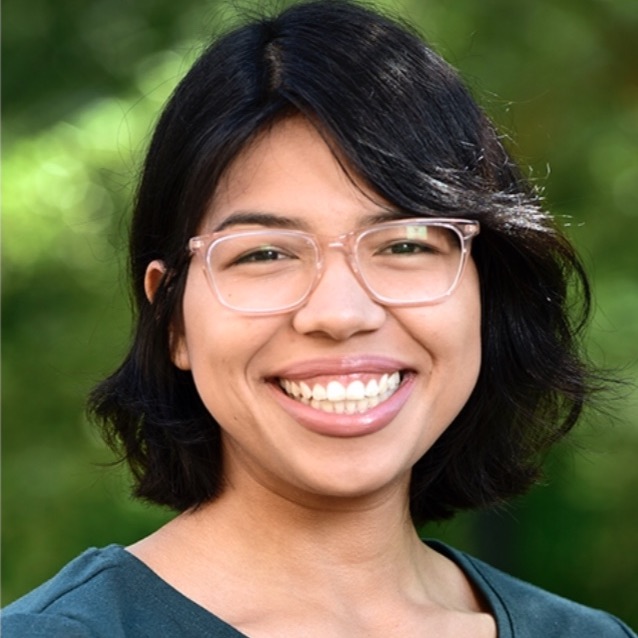 |
Alma Solis (ella/she/hers) - Duke University - Department of Evolutionary Anthropology
|
 |
Amanda Carbajal (she/her/ella) - University of California, Santa Cruz - Molecular, Cellular and Developmental Biology Department
Amanda Carbajal MS, is a fifth year PhD Candidate in the Molecular, Cellular, and Developmental Biology track of the Program in Biomedical Sciences and Engineering at the University of California, Santa Cruz. She is originally from Oxnard, California, and her parents are from Mexico (Nayarit, Guanajuato). She is a first generation college student. She earned her Bachelor of Science and Master of Science degrees from San Francisco State University and has done internships in industry to learn other applications of science. She has also worked as an Adjunct Biological Sciences Instructor having taught at local universities in order to solidify her own knowledge of science, as well as practicing her communication and mentoring skills. Amanda started her PhD at NASA Ames however, when the Pandemic began, she had to switch labs in order to keep her momentum. She has been in the Manel Camps Lab studying the genetic basis of antibiotic resistance to fluoroquinolones in clinical E.coli. For her future career goals, she is casting a wide net across academia and industry, leaning more on toward academia as she is absolutely passionate about teaching and mentoring students, especially students not well represented in the Academy. Earning a postdoctoral position is at the top of her list. When Amanda isn’t in the lab, she enjoys the outdoors and pursuing artistic hobbies like photography, writing and all styles of dance. |
 |
Ashli Wright (she/her/hers) - Department of Biological Sciences - Florida International University
Ashli Wright is a Ph.D. Candidate in the Department of Biological Sciences at Florida International University. She holds a Bachelor of Science in Health Education: Health Promotion and Disease Prevention and a Master of Public Health in Public Health Practice: Social and Behavioral Sciences from the University of Florida. Her research in public health included conducting needs assessments and planning, implementing, and evaluating health programs for student health services at an R1 university. Prior to joining FIU, Ashli taught Honors, Advanced Placement, and A-Level Cambridge biology and environmental science courses at a STEM magnet high school. She has worked with the CODA Societies and the Aspen Institute to mentor underrepresented high school students to pursue STEM majors and careers and Swissnex Boston to develop a landscape analysis of physics education resources. Her dissertation research focuses on educator motivation and attitudes toward reading and teaching using primary scientific literature as an instructional tool in high school and undergraduate populations. Her research interests include science communication, science policy, identity, science practices, and curriculum development. Ashli’s ideal career would afford her the opportunity to combine her interests in science education, communication, and policy to inform instructional practices in science and inform our understanding of how scientific knowledge is constructed and applied. |
 |
Austin Robertson (he/him/his) - Molecular and Cellular Pharmacology/Pathology and Laboratory Medicine -University of Wisconsin-Madison
|
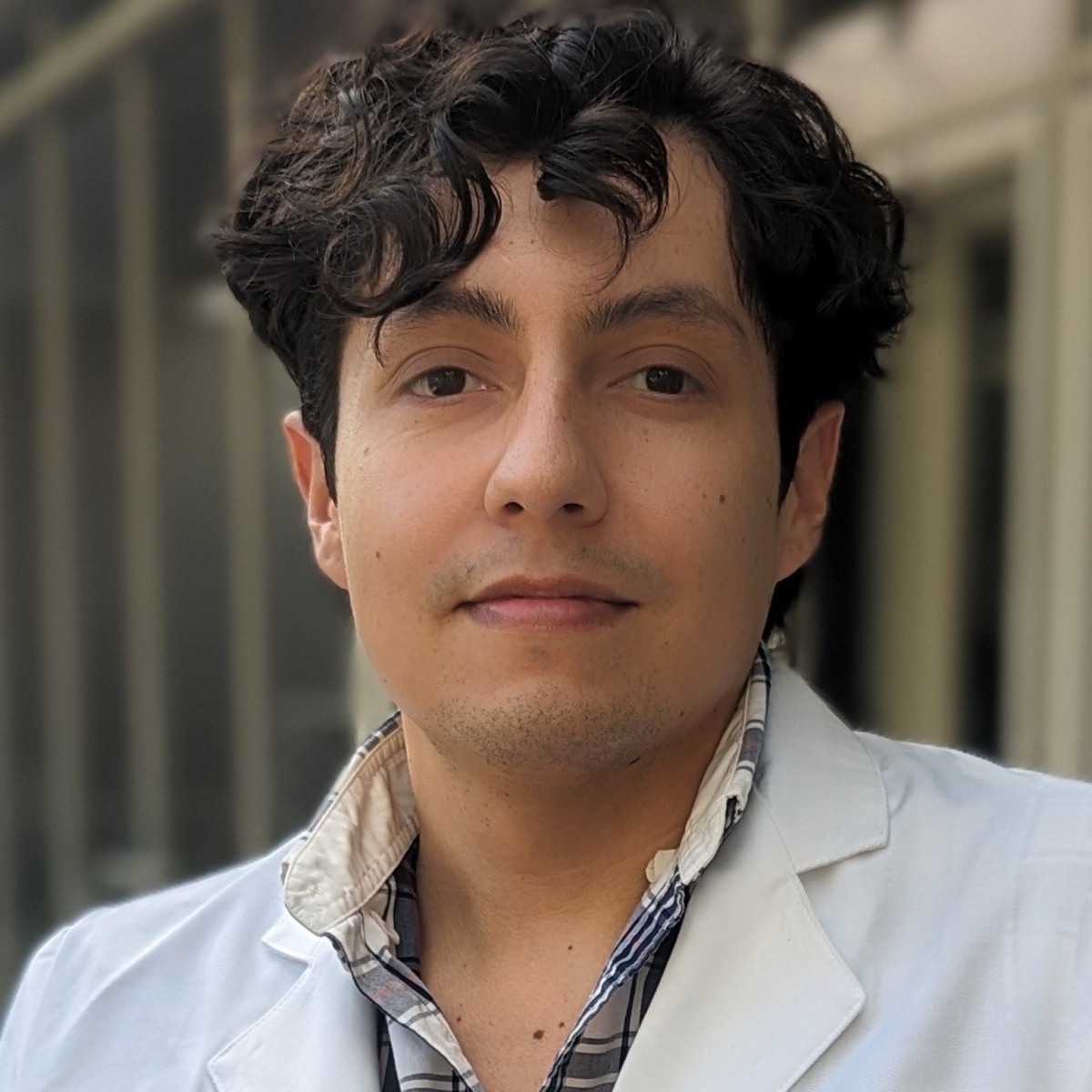 |
Cuauhtemoc Gonzalez (he/him/his)) - UT MD Anderson Cancer Center UTHealth Houston Graduate School of Biomedical Sciences - Biochemistry and Molecular Biology
Cuauhtemoc Ulises Gonzalez is a fourth-year doctoral candidate at the UT MD Anderson Cancer Center UTHealth Houston Graduate School of Biomedical Sciences in the Biochemistry and Cell Biology program. Ulises was originally born in Cerritos, San Luis Potosi, Mexico, and immigrated to Tennessee at a young age. He earned his bachelor’s in Biochemistry from the Middle Tennessee State University and was involved in bioorganic research where he used vibrational spectroscopy to study protein conformations and in psychology research where he investigated cultural differences in flashbulb memory. Through these experiences, he found his passion for neuroscience and went on to pursue his Masters at the University of Texas at Dallas (UTD) where he worked on investigating the role of NMDA subtype receptors in strong fearful memories to understand methods in attenuating maladaptive memories. Currently, Ulises is pursuing his Ph.D. under the mentorship of Dr. Vasanthi Jayaraman where he examines the structural and functional properties of ionotropic glutamate receptors in the presence of trans-synaptic interactions. Ulises has enjoyed volunteering as a reading tutor to immigrant children and as a soccer coach to underserved youth. He aims to become an advocate for underserved communities and promote STEM education within these communities. In addition, Ulises also enjoys playing volleyball and soccer. He also likes playing Catan and relaxing with Sci-Fi books, films, and shows. |
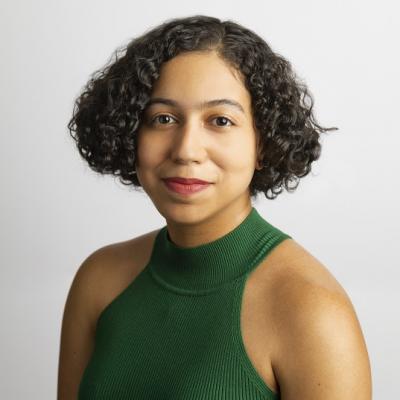 |
Dominique La Barrie (she/her/hers) - University of Georgia - Psychology Department
Dominique La Barrie is currently a graduate student in the Behavioral and Brain Sciences program at the University of Georgia, specializing in developmental psychology. Dominique studies processes of ethnic-racial socialization (ERS) in Black and Latinx families, and her dissertation research focuses on the role of non-parental socializers (e.g., grandparents) and how their ERS messages may help youth cope with experiences of racism and discrimination. Her goal is to translate this research on the potentially protective role of ERS to information and programs that can be shared with community partners to mitigate the negative impacts of racism and discrimination on youth. Dominique is passionate about communicating the impact of racism and discrimination to both academic and non-academic audiences, and regularly engages in speaking and outreach opportunities at UGA, locally, and nationally. An ongoing professional goal is to work toward diversifying academia by recruiting, retaining and supporting historically underrepresented minority students. To this end, she has served as the previous PUMP coordinator and serves on the BBS diversity committee. Her contributions have been recognized by the American Psychological Association (e.g., Early Graduate Student Research Award and the Junior Scientist Fellowship), National Science Foundation and the Society for Research on Child Development (e.g., NSF SRCD Emerging Scholars Program). |
 |
Esmeralda Melgoza (she/her/hers) - University of California Los Angeles (UCLA) - Fielding School of Public Health Community Health Sciences
Esmeralda Melgoza is a first-generation Mexican American PhD student in the Department of Community Health Sciences at the UCLA Fielding School of Public Health (FSPH). She has a Bachelor’s degree in history and minor in public health, Master of Public Health, specialization in health education, and certificate in emergency public health — all from UCLA. Esmeralda works directly with Drs. Hiram Beltran-Sanchez and Arturo Vargas Bustamante, two excellent mentors at the UCLA FSPH. Esmeralda’s research examines health disparities in the emergency medical services (EMS) system with a focus on the Latinx population, especially older adults. Her research assesses health disparities across specific phases of the EMS system, including initial 9-1-1 activation, dispatch of emergency personnel and resources, on-scene care, ambulance transport to the emergency department (ED), and EMS-ED handoff. Esmeralda’s research has been published in Medical Care, Prehospital and Disaster Medicine, and Frontiers in Public Health. She has presented her research at the American Public Health Association, Gerontological Society of America, International Conference on Aging in the Americas, and the Society for Academic Emergency Medicine. She is also 1 of 20 students selected nationwide to attend the ESO/Prehospital Care Research Forum. Esmeralda enjoys spending time with family, traveling, hiking outdoors, dancing, and going to the gym. |
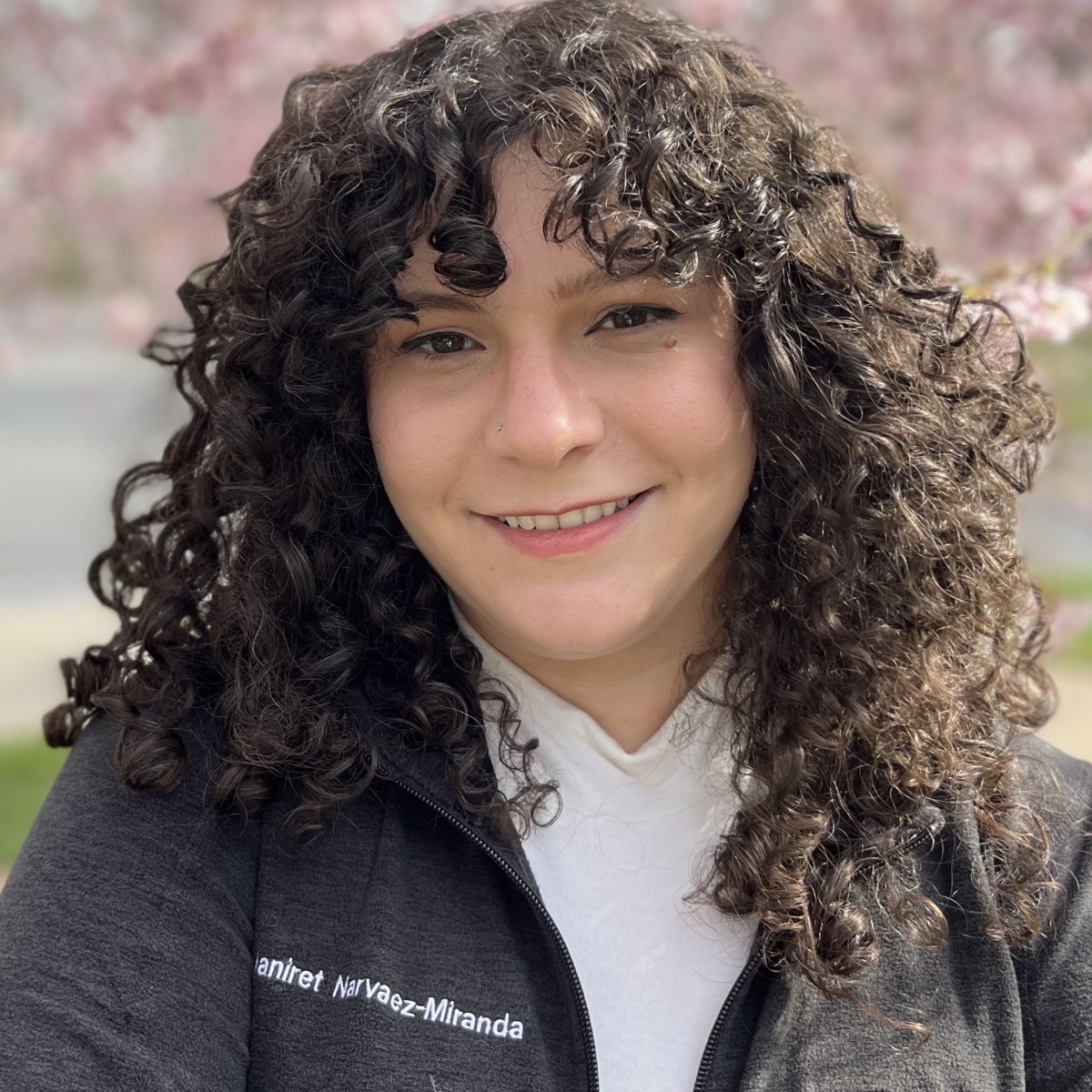 |
Janiret Narvaez Miranda (she/her/hers) - University of Rochester School of Medicine and Dentistry - Clinical & Translational Science Institute (CTSI)
Janiret Narváez Miranda is a Ph.D. candidate and a fourth-year student in the Translational Biomedical Sciences (TBS) graduate program at the University of Rochester School of Medicine and Dentistry. She is originally from Puerto Rico, earning her Bachelor’s in Industrial Microbiology from the University of Puerto Rico- Mayagüez. After graduating from her undergraduate studies, she was part of the Post-baccalaureate Research Education Program (PREP) at the University of Rochester, where she discovered that scientific research was one of the things she wanted to do in life. After gaining more experience, she realized that the type of research she wanted to do was the one that could be taken from “bench to bedside.” It was then that Janiret applied for a doctorate in Translational Sciences. Janiret’s current project focuses on understanding how the infant gut microbiome and breastmilk consumption can influence vaccine responses. Science has not been her only passion. Janiret has worked and participated in initiatives to create a nurturing environment for minorities at the University of Rochester. One of Janiret’s long-term career goals is to promote the inclusion and participation of minorities in translational sciences and to perform research that ameliorates the health disparities that affect minority communities. When she is not doing science, she likes to go out with friends, try new restaurants in Rochester, and sometimes she likes to stay home, read books, and watch movies. |
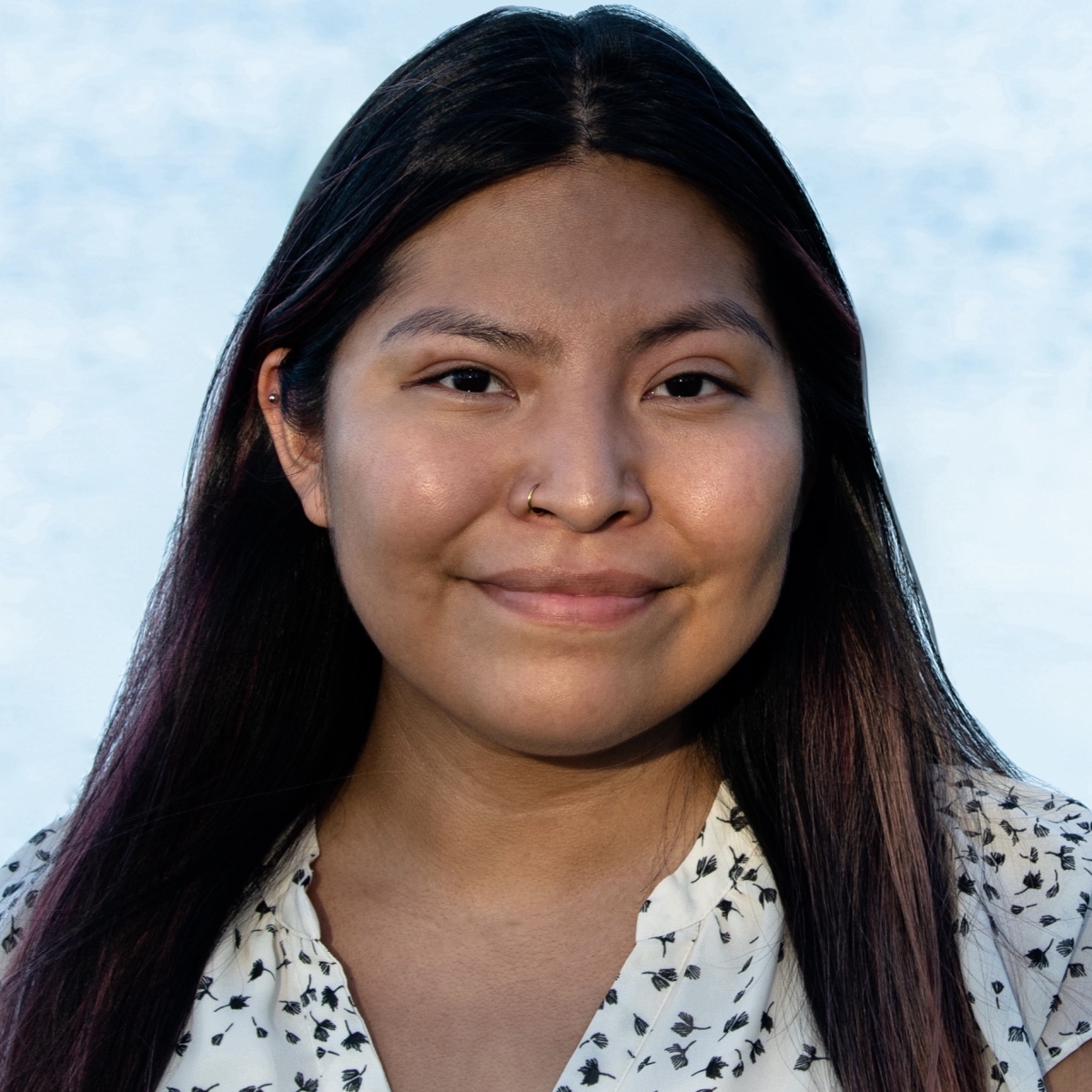 |
Kayley Manuel (she/her/hers) - University of Wisconsin-Madison - Ophthalmology and Visual Sciences
Kayley Manuel is a Native American woman from the Tohono O’odham tribe, located in southern Arizona. She is a 3rd year Ph.D. candidate in the Microbiology Doctoral Training Program (MDTP) at the University of Wisconsin-Madison. She graduated with her B.S. in Microbiology and a minor in Studio Art from the University of Arizona. Currently, Kayley is a researcher in Dr. Donna Neumann’s laboratory at UW-Madison. Kayley has been awarded the Science and Medicine Graduate Research Scholars Fellowship and National Science Foundation Graduate Research Fellowship to complete her dissertation work. Kayley studies how CTCF-mediated chromatin loops transcriptionally regulate Herpes Simplex Virus Type 1’s ability to undergo latency and viral reactivation. During Kayley’s participation in the Ronald E. McNair Achievement Program, she developed her passion for uplifting and supporting underrepresented students in higher education. Kayley is an active student advocate in MDTP, she is serving on the Diversity and Inclusion committee and chairs the Training and Reporting subcommittee. Kayley is also a mentor for the SciMed GRS Program and to an underrepresented undergraduate student. Lastly, Kayley is passionate about community outreach and interacts with local middle and high school students through events titled ‘My Story in STEM: From Voices Underrepresented in Science’. Kayley’s long-term goals are to become a leader in science and ensure underrepresented students are supported, retained, and successfully complete degrees in higher education. In Kayley’s spare time, she enjoys reading outside next to the lake, playing video games, and oil painting. |
 |
Lee Notice (she/her/hers) - The University of Texas MD Anderson Cancer Center UT Health Houston Graduate School of Biomedical Sciences - The Department of Microbiology and Molecular Genetics
Lee-Ann Notice is a fourth-year PhD student studying microbiology and molecular genetics at The University of Texas MD Anderson Cancer Center UT Health Houston Graduate School of Biomedical Sciences. She earned her B.S. in Life Science Education from Texas Wesleyan University. There, she worked alongside Dr. Bruce Benz using genetic techniques to determine the population viability of white rosinweed in Tarrant County, Texas, where rapid urban expansion has led to habitat fragmentation of this Texas endemic, making it critically endangered in recent years. Currently, she works in the lab of Dr. Ambro van Hoof at UT Health, where she uses yeast to characterize the roles of several known and putative RNases in eukaryotic mRNA processing and degradation. She hopes that gaining molecular insight into the functions of these proteins will expand upon the current understanding of RNA regulation, and hopefully, reveal important links between RNA control mechanisms and human disease. In addition to several travel and presentation awards, and institutional scholarships, she has been awarded an NIH F31-Diversity Fellowship. Her ultimate career goal is to become a professor at a primarily undergraduate university, where she can both teach and lead her own microbiology and molecular genetics lab. She plans not only to give students the opportunity to participate in innovative and cutting-edge research, but also to provide trainees (especially those from backgrounds historically underrepresented in the sciences) with quality networking, internship, and mentorship experiences that will propel them on their own journeys in science. |
 |
Mariela Rivera Serrano (she/her/hers) - University of Puerto Rico Rio Piedras Campus - Biology Department
Mariela Rivera Serrano is a PhD candidate in Biology at the University of Puerto Rico, Rio Piedras Campus. She specializes in cancer biology, drug resistance, gene-editing technologies, and omics. Her research focuses on the molecular mechanisms of drug resistance in ovarian cancer, specifically how Matrix Metalloproteinase-3 (MMP-3) influences cisplatin resistance in ovarian cancer, with the long-term goal of developing more effective treatment strategies for ovarian cancer patients, under the direction of Dr. Pablo Vivas. Mariela's academic background includes a Master of Science degree in Biomedical Research from the University of Navarra, Pamplona, Spain, where she studied genetic and microRNA profiles of colorectal liver metastasis and the implication of c-Met as a potential therapeutic, under the mentorship of Dr. Alfonso Calvo and Dr. Anne-Marie Bleau. Additionally, Mariela served as a lab manager at the Biomedical Proteomics Facility, Universidad Central del Caribe, School of Medicine, Bayamón PR, under the direction of Dr. Nawal Boukli. During this time, she worked on a variety of projects involving the detection of biomarkers in prostate cancer, HIV-1, drug addiction, neurocognitive impairment, and multiple sclerosis that resulted in peer-reviewed publications. Mariela enjoys guiding and nurturing undergraduate students and wishes to become a successful scientist that can make a difference in Puerto Rico. She hopes to contribute to the development of novel treatments and therapies that can improve the lives of cancer patients. In her spare time, Mariela enjoys going to live music shows, hiking, snorkeling and scuba diving. |
 |
Mirella Hernandez Lima (she/her/hers) -University of Michigan - Neuroscience Graduate Program
Mirella Hernandez is a Ph.D. candidate in the Neuroscience Graduate Program at the University of Michigan. She earned her Bachelor of Arts in Biopsychology at California State University San Bernardino (CSUSB). As an undergraduate student at CSUSB, she was accepted into the NIH-funded Diversity-promoting Institutions Drug Abuse Research Program (DIDARP). This fellowship was extremely influential in her research training and allowed her to complete an Honors thesis. Her undergraduate Honors research project focused on the study of risk factors associated with enhanced susceptibility to adolescent depression, as well as the long-lasting neurobehavioral consequences of early antidepressant treatment. Under the guidance of Dr. Matthias Truttmann, Mirella’s current graduate thesis project investigates the complex relationship between sensory perception, environment, and disease. Specifically, she is working towards a better understanding of how environmental stressors mediate changes in lifespan and healthspan, and how this knowledge can be applied to disease prevention and treatment. Due to the limited awareness that she had when growing up regarding STEM, early exposure to science is very important to her. Therefore, she engages in several programs that have allowed her to provide early exposure to science, such as GEAR-UP, BrainsRule!, MYELIN, and Wolverine Pathways (UM). Driven by her own experiences, Mirella has dedicated herself to diversity advocacy and aims to continue the work of science advocates by mentoring underrepresented students who will lead the charge in scientific discovery. Her ultimate goal is to contribute to the advancement of science by conducting research at an undergraduate minority-serving institution. |
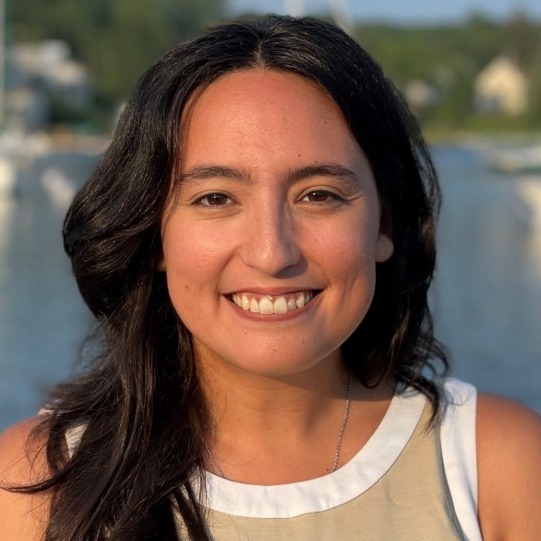 |
Natasha de la Rosa-Rivera (she/her/hers) - University of Massachusetts Amherst - Neuroscience and Behavior
Natasha Mercedes de la Rosa Rivera is a 5th-year PhD candidate in the Neuroscience and Behavior Program at the University of Massachusetts Amherst. She was born and raised in Puerto Rico, and after finishing her 1st year at the University of Puerto Rico Mayaguez she transferred and graduated with a Bachelor of Science in Biophysical and Biochemical Sciences from the University of Houston in Texas. During her last year, she started her research trajectory investigating the therapeutic role that microRNAs could have in mammalian ovarian cancer cells and continued her work in non-coding RNAs as a G/GREAT scholar, part of the Human Genome Sequencing Center in Houston. Before her career pivoted to cognitive neuroscience, she also worked in the biotech start-up industry researching potential protein biomarkers to identify bacterial pathogens in a diagnostic point-of-care device. Natasha continued her research work as a post-baccalaureate student at Baylor College of Medicine investigating the role of neuronal suppression in the visual cortex in a covert attentional task. Here, she also collaborated in two other projects related to brainstem involvement and spasticity recovery in stroke patients, as well as researched how multisensory (i.e., visual and somatosensory) stimuli are represented in subcortical brain regions. She is set to graduate with her doctoral degree in summer 2023 from UMass Amherst. Here, she studies the similarities between visual long-term memory and perception using functional MRI, psychophysics, and computational models. Natasha also has a passion for science education and human healthcare; as well as dancing and colors! |
 |
Stanley Cheatham (he/him/his) - Virginia Commonwealth University - Pharmacology and Toxicology
Stanley Cheatham is a third year PhD Candidate at Virginia Commonwealth University in the department of Pharmacology and Toxicology. He graduated from Virginia Commonwealth University with a bachelor’s degree in biology and minors in chemistry and Spanish. During his undergraduate education he participated in the Louis Stokes Alliance for Minority Participation in STEM which sparked his interest in basic science. As a senior capstone project, he received the IMSD fellowship where he was finally able to explore his fascination for drugs of abuse and their intersection with the microbiome. Upon graduating he then spent a year as a PREP scholar to refine his research skills at Virginia Commonwealth University. As a PhD student he has received the ASPET Washington fellowship, which teaches aspiring graduate students the importance of policy advocacy for the advancement of academic science. Additionally, he was appointed to a NIH T32 fellowship under the tutelage of Dr. Hamid I. Akbarali and serves as a graduate advisor for Ronald E. McNair Scholars. His research is now focused on the role of cholinergic input during chemotherapy induced diarrhea. Stanley hopes to use the skills and training during his PhD work to be an advocate for minority participation in STEM. Outside of the lab, Stanley enjoys community advocacy where he sits on the board of associates for a local non-profit. He also enjoys Pilates, weight training, and cooking. |
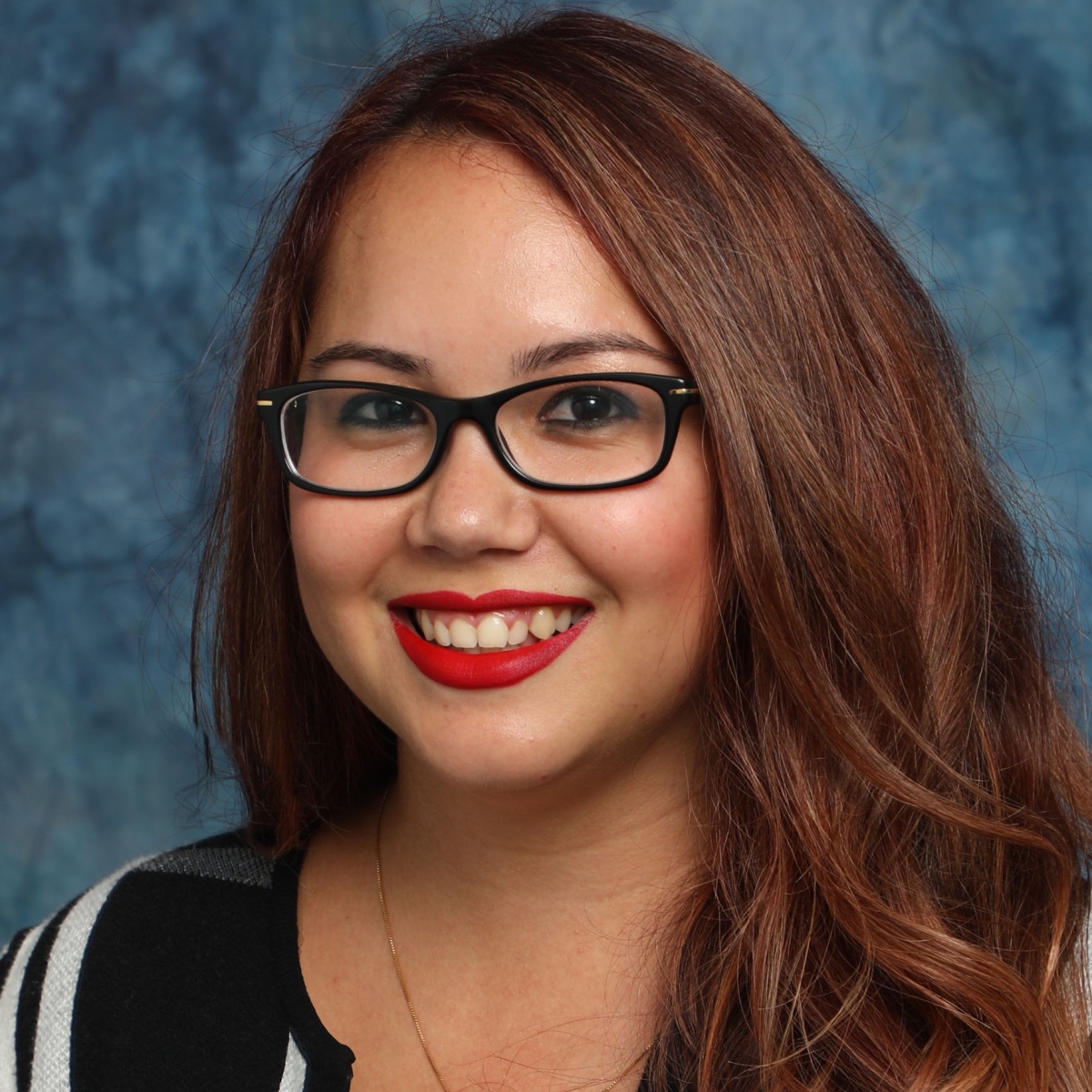 |
Victoria Rodriguez (she/her/hers) - University of California, Irvine - Program in Public Health- Department of Health, Society, and Behavior
Victoria E. Rodriguez is a first-generation college student and a fifth year Ph.D. candidate in the Program of Public Health, Department of Health, Society and Behavior at the University of California, Irvine. Previously, Victoria received her B.A. in Psychology with a double minor in Family Studies and Human Sexuality from California State University, Northridge. She then received her Master of Social Work and Master of Public Health from the University of Southern California. Victoria’s research focuses on advancing health equity among marginalized and underserved populations utilizing mixed methods approaches. Her work examines cancer disparities, treatment, and survivorship. Specifically, she is interested in the structural, racialized, and gendered processes that contribute to women’s health outcomes. Her dissertation focuses on endometrial cancer survival outcomes and survivorship experiences among Latina women in California utilizing a mixed methods approach. Victoria is a recipient of the Ruth L. Kirschstein National Research Service Award Individual Predoctoral Fellowship to Promote Diversity in Health-Related Research (NIH/NCI 1F31CA 271700-01). Outside of research, Victoria is passionate about mentoring first-generation and underrepresented minority students and serves in various roles to increase inclusive excellence at her university. |
 |
Vielka Ortiz Figueroa (she/her/they/them) - Ponce Health Sciences University - School of Behaviour and Brain Sciences - Clinical Psychology Doctorate
Vielka Ortiz Figueroa is a fourth-year Clinical Psychology Doctoral Student in Ponce Health Sciences University, San Juan Learning Center in Puerto Rico. She achieved a BA in Psychology from the University of Puerto Rico in 2015. In 2016 started graduate studies in Albizu University but in 2017 Hurricane María happened, the aftermath created change in the island’s infrastructure and resources were limited for more than a year. Vielka collaborated with other psychologists by providing mental health aid in different areas of the island while finishing classes without electricity. In 2019 she achieved a MS in Counseling Psychology and in that same year started her Doctorate in PHSU. Covid-19 Pandemic started and basically rewrote the way we learned and provided mental health services. Their clinical practice has been a diverse multicultural experience between adults, adolescents, and children. She has provided affirmative therapy and care to trans youth and adults. Also train staff members in affirmative models to prepare a Residential Home as a safe environment for LGBTQ+ youth. She also provided trans affirmative therapy at Waves Ahead Puerto Rico to LGBTQ+ adults. Vielka is currently in the Gender and Sexual Diversity Track. Her current dissertation focuses on LGBTQ+ relationships in Puerto Rico, identifying their protective factors when one or more members have high level symptoms of anxiety and/or depression. In her future path, she is interested in continuing education in LGBTQ+ mental health, couples therapy, affirmative and trans affirmative models with the intention of creating a mental health clinic for the community. |









